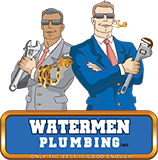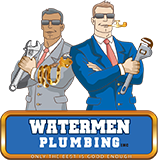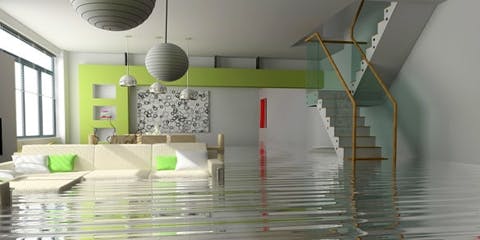Are you looking to prevent plumbing problems in your home?
The intensity of rain in Florida differs from states situated farther north. Some of these torrential downpours can cause significant worry and trouble for homeowners.
Many people believe that their pipes are in great condition and their drainage system can handle the worst. But, as Cavalier Estates warns, they are caught by surprise when they discover that their plumbing system can’t handle the extra rain.
Now we are going over the top plumbing issues that you should watch out for when it rains. You can use this article as a handy checklist to check for damage after a rainstorm or prevent these issues in the first place.
#1: Blocked Drains
Rainstorms bring debris along with the excess water. That’s why drain blockage is a common problem during bouts of heavy rain. The dirt, leaves, and twigs start clogging your drains after entering the sewer system
The symptoms for this kind of blockage can be experienced in the form of sluggish drains that won’t get rid of the water as quickly as before. Sometimes the issue is accompanied by a strange smell of sewage.
Your first option is using a plunger. Should that fail to work, you should get in touch with a professional plumbing technician. Unclogging your drains may require some expert assistance.
#2: Basement Flooding
Heavy rains bring about flooding. When it comes to your home, anything located underground is at the highest flooding risk. The most efficient way to prevent flooding trouble is the installation of a sump pump.
We recommend testing your sump pump before a major rainstorm arrives. This is an easy task. You just have to pour some water into the crock. A properly working pump will automatically activate and pump the poured water out.
#3: Damaged Pipes
Did you know that raining after a long drought makes it more likely for your pipes to crack? Every time it rains again, the likelihood of complete breakage increases. The pressure carries more detrimental effects when there are already tiny cracks in the pipes.
While it’s true that old pipes are prone to acquire serious damages and fail, you should check your pipes even when they are relatively new. The top signs you should watch out for include low water pressure and brown water from your faucets.
#4: Septic Tank Flooding
Homeowners who have a septic tank on their property should be aware of the risk of septic flooding. This happens when a torrential downpour saturates your drain field. As a result, the tank can’t handle the situation and put out water.
In such a situation, drain water likely starts backing up through your pipes. After the first time it happens, you should immediately make adjustments to your septic tank system.
#5: Condensing Boiler Damage
Your condensing boiler could be another risk factor during a downpour. That’s because sometimes condensate pipes get installed improperly, effectively terminating at the rainwater downpipe.
Heavy rain will overfill the downpipe and the water starts to back up your condensate pipe. As the water travels through the pipes, it will eventually flood the boiler machinery. Keep in mind that a flooded condensing boiler is extremely likely to be beyond repair.
Check for Accompanying Issues
Heavy rain can cause additional problems in your home. We recommend inspecting your house for the following types of damage as well. Spotting these problems indicate that your home could be at a higher risk of rainstorm-related plumbing damage.
Leaky roof
Heavy rain together with strong wind is bound to affect your roof. Check your roofing for water leaks after a rainstorm. Discovering significant damage could mean that you face plumbing issues as well.
Waterlogged siding
Warping wood after heavy rain is a sign of serious concern. Waterlogged siding may start coming off your house. Fix damaged sections and make sure to treat the replacement section with chemicals that turn the surface waterproof.
In a nutshell: Plumbing Problems to Watch Out For When It Rains
Rainstorms raise the risk of all kinds of issues in your home. However, plumbing is one area that is at a greater risk than other components of your house. You should take extra care to watch out for typical plumbing problems after heavy rain.
These are the top potential plumbing issues after a heavy downpour:
- Drain blockages after a heavy bout of rain
- A flooded basement or crawl space
- Damaged pipes in your piping system
- Catastrophic boiler damage due to rainwater backup
- Saturated drain field leading to septic flooding


